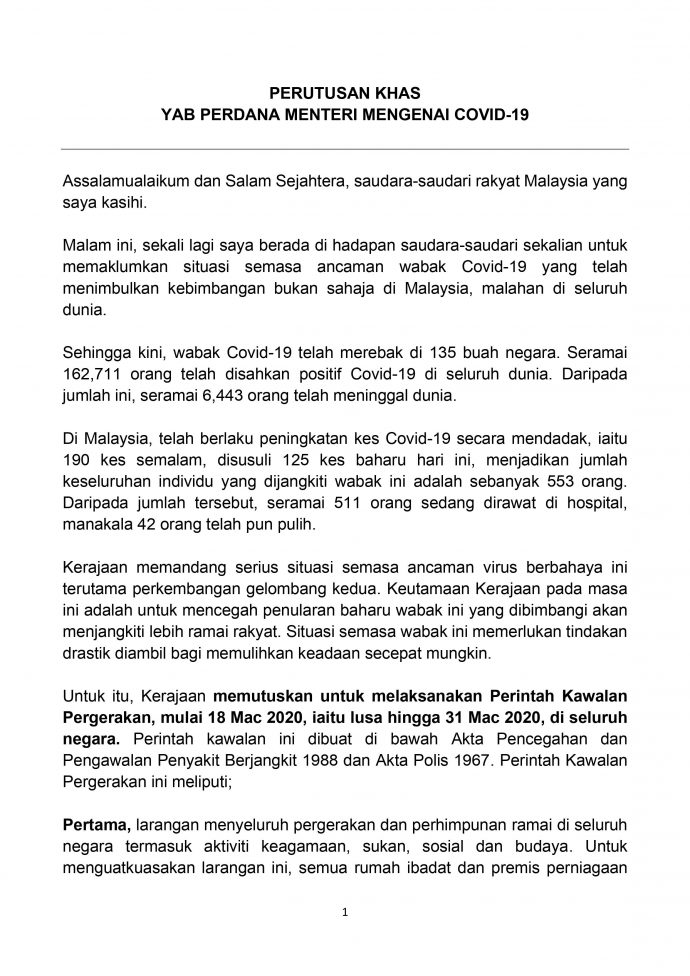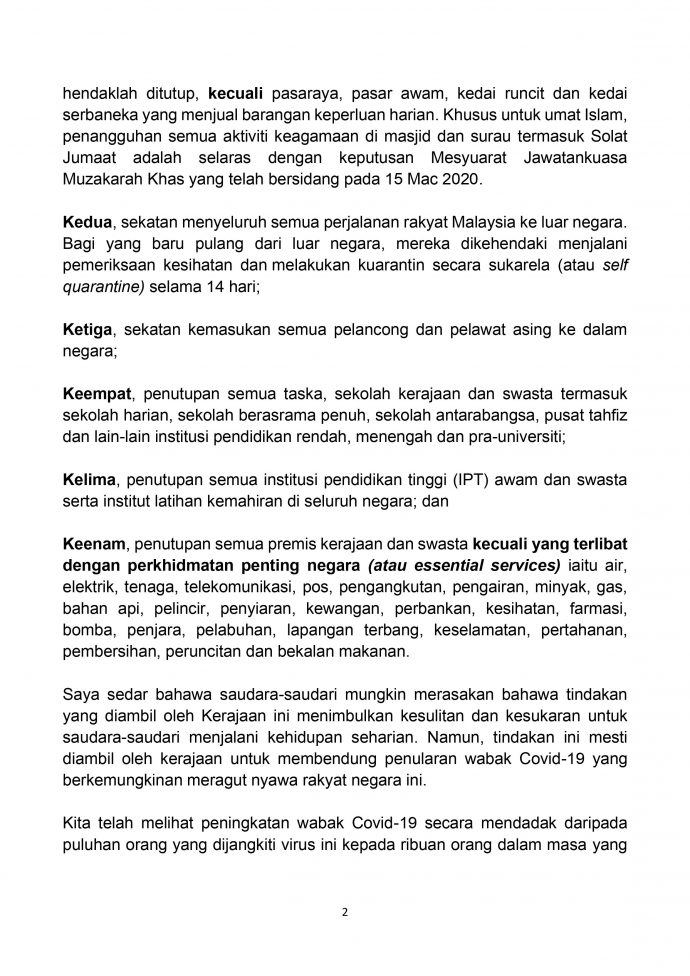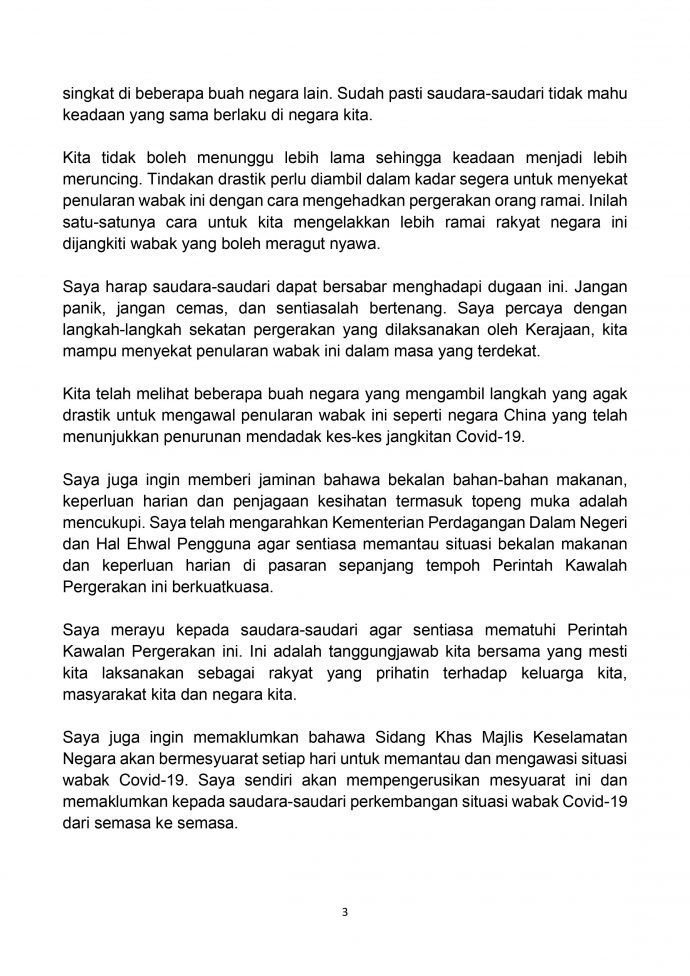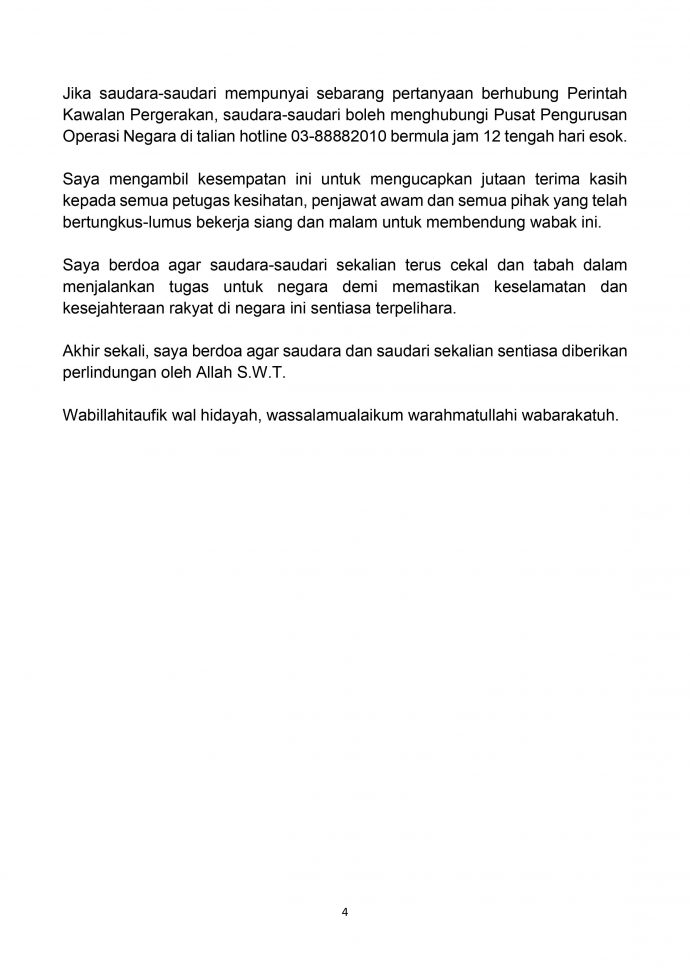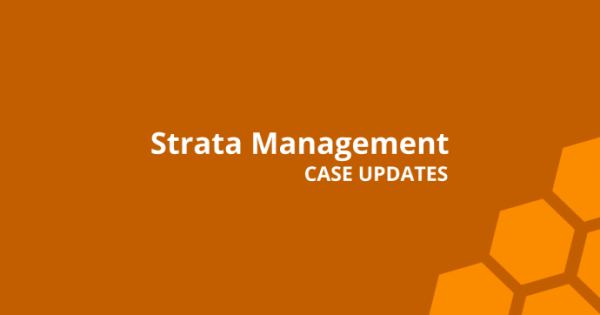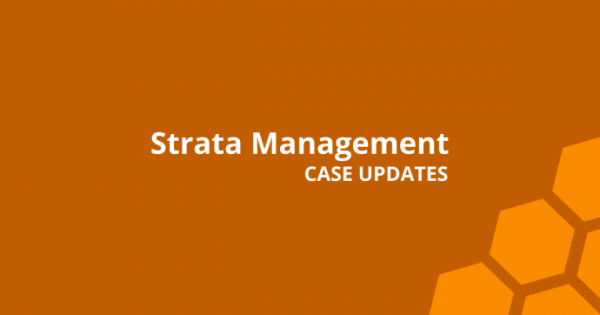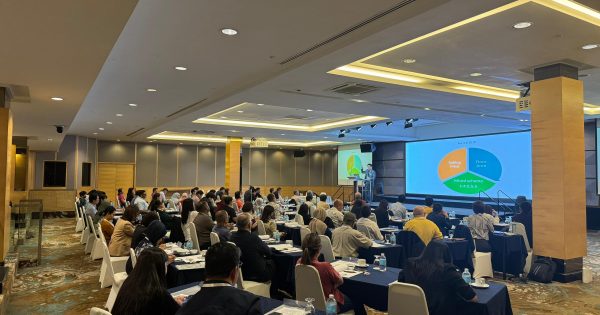
As we were preparing this update, the MCO period is extended until 14.4.2020 as widely reported.
Whilst the essential service providers are carrying out their business as usual, they are many more which are required to shut down.
No Law governing tenancies
There is no specific piece of legislation governing tenancies in Malaysia (unlike other countries) and the legal framework which deals with tenancies in general are the law of contract together with decided case laws.
Having said the above, there is a proposed Residential Tenancy Act which according to the National Housing Department should be introduced in 2021.
Tenancy of a Residence
A residential tenancy relates to a tenancy of a dwelling place. And since the MCO has no impact on a residential tenancy, monthly rental must still be paid as usual, more so when everyone is now restricted to its own home. As such, there is no reason to ask for a suspension of rental.
Tenancy of an Office / Retail / Factory
They are primarily business premises. According to the MCO, business premises must shut except for those essential services providers.
Tenancy of Essential Service Providers
Against this backdrop, for those retailers, factory operators, businesses who carry out essential services and continue to have quiet enjoyment of the premises to carry on their business, they are not entitled to request for a suspension of rental.
Tenancy of Non-Essential Service Providers
For tenants who do not carry on essential services, including retailers, factory operators and those who had since suspended operations, they can 1stly check against their tenancy agreements whether they are entitled for such benefits.
Clauses which a tenant should keep an eye on are clauses related to force majeure and suspension of rental. They may contained within a same clause or drafted separately.
If there are specific clauses which deals with force majeure events and include expressly events:
(a) due to outbreak of disease; or
(b) governmental or regulatory action
beyond the control of both landlord and tenant entitling the parties to enjoy suspension of rental, the tenant can then refer to those specific clauses and request for a suspension.
Suspension of rental is not uncommon especially when the intervening event has a direct impact on the occupation of premises. The best illustration would be if the premises is damaged by fire rendering the premises unsafe for occupation. A sample clause can be seen below:
If at any time during the continuance of the tenancy:
(a) the premises or any part thereof shall be come substantially unsafe or unfit for occupation or use from any disabling cause other than the act or default of the tenant; or
(b) the premises or any part thereof shall be destroyed or damaged to as to become unfit for occupation or use by fire, water, storm, tempest, earthquake, insects, theft, burglary, explosions, riots, civil commotion, war, or other inevitable cause; or
(c) the premises or any part thereof or any business activities shall be shut down or suspended due to outbreak of disease or governmental or regulatory action
then in each case the monthly rental shall be suspended and cease to be payable from the first day of such events above occur until the premises shall have been again rendered fit for occupation or the outbreak of disease is subdued or the uplift of any governmental order, whichever the case maybe.
If you find similar clauses in the tenancy agreement, you can now write in to your landlord and request for a suspension of rental.
What if there are no similar clauses?
As mentioned above, there is no existing legislation which deal with the landlord and tenant relationship and as such all tenancy agreements are drafted quite differently. Some of the simple agreements do not have a suspension clause. If you could not find a similar clause to suspend rental, you may:
(a) look out for the force majeure clause and see whether there is a closed category of events spelled out or it can include other factors;
(b) look out for the general “suspension of rental” clause and see whether the outbreak of disease fit in or can be included as one of the circumstances to enjoy rental suspension;
(c) go through the entire tenancy agreement and see whether there are any methods to deal with suspension of rental;
(d) if you cant find any of the above, write in to your landlord and request one on a goodwill basis but this will dependent solely on the landlord whether to grant or reject.
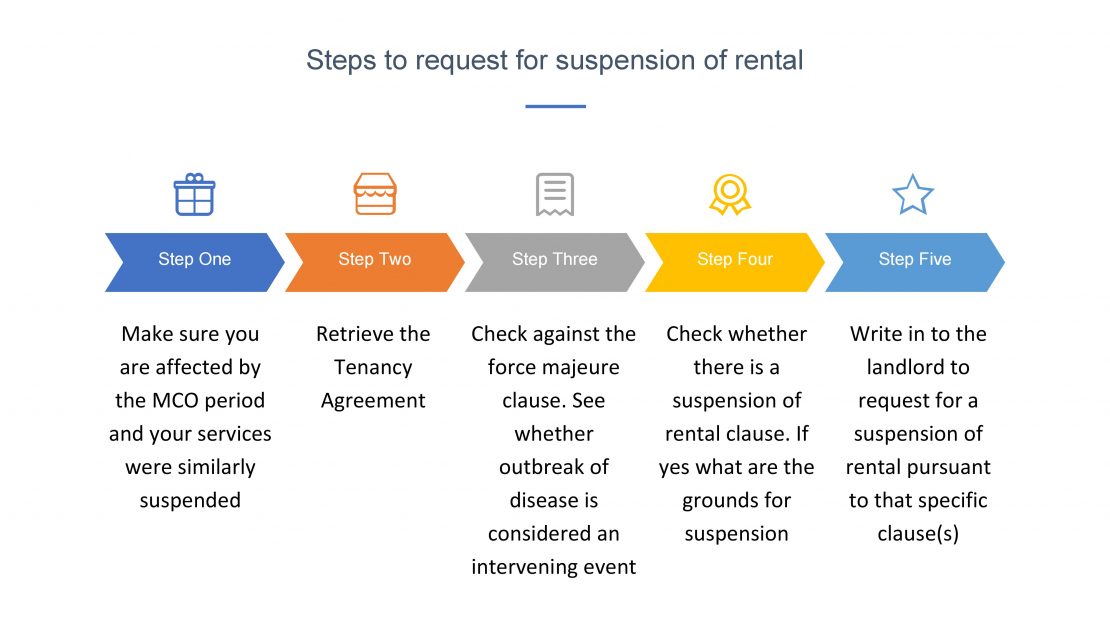
This article is written by Daphne Khoo, an Associate of Messrs Chee Hoe & Associates, Advocates & Solicitors, a legal firm in Kuala Lumpur, Malaysia. She practices in the area of employment law and handle industrial relations disputes. You can contact her if you have a question.
